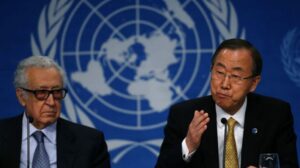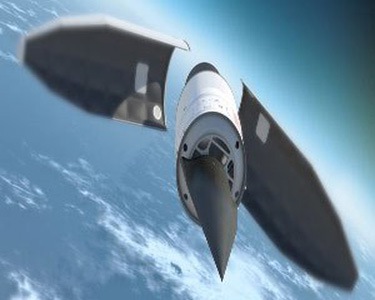Newspaper Article 06/02/2014
There is a great deal of realization that the key to Syrian conflict remains a political solution. Over the past three years, despite the military support extended to both sides, a decisive victory has remained a forlorn hope. Hence the renewed emphasis on finding a political solution.
Geneva II Conference is a UN-backed initiative to find a solution to the three-year long Syrian conflict. It aims at bringing the opposition groups and regime to the table. UN Peace envoy to Syria Lakhdar Brahimi is in the fore front of these talks supported by Russia and the US. These talks were a follow-up to the Geneva Talks of 2012 that were pretty much a failure. The talks started on January 22, 2014 in Switzerland. Forty countries are participating in the Geneva II Talks apart from UN, Arab League, Organization of Islamic Cooperation (OIC) and EU.
As much as we would have liked to see diplomacy pay dividends on Syria, the truth is the chances of success of Geneva II talks were always slim. Too many contentious issues remained to hamper a possible breakthrough.
First there was the question of representation of opposition. Who would represent the opposition? Certain groups were not even big enthusiasts for participation to begin with, such as the Syrian National Coalition, as they saw talks holding little promise. In a run-up to the talks, the Syrian regime made overtures to win favourable opinion and proposed ceasefire at Aleppo and prisoner swap with the opposition. This made the Coalition changed its mind. Threats from the US and Britain to withdraw support also made the Coalition rethink its decision. However, to those who are fighting the Assad regime in Syria, the Syrian National Coalition do not even constitute a true opposition as they are enjoying a luxurious exile and not suffering the hardships in Syria. There was hence no real representation of fighters on the ground.
Then deciding on whether to bring Iran to the talks was not so easy. The last minute invitation sent to Iran by UN Secretary General Ban Ki-moon was withdrawn. The US and Syrian National Coalition objected vehemently to the invitation, asked for a reversal of invitation extended to Iran and threatened to boycott the talks. While the US insisted that Iran accepts the Geneva communiqué that requires Assad to step down. Russia however was a staunch backer of participation of Iran in the talks.
Iran’s exclusion from the talks has fed skeptics who were doubtful of striking a deal with Iran in the first place. As they write that the road to normalization between Iran and the West is paved with multiple challenges and coming to agreement with Iran on one issue does not mean progress on other controversial issues will be easy.
Prior to the talks, Russia reaffirmed its support to Assad regime. Russia however warned from the outset that talks would neither be simple nor quick but it was important for both sides to grab this ‘historic opportunity’.
Before the talks kicked off, the Assad regime dismissed a power-sharing deal. Thus, the two sides with totally opposite views of outcomes were to come to talks while the opposition did not want anything less than ouster of Assad, the regime representatives considered it a red line. In such atmosphere, the talks made a bitter start.
The talks focused mostly on the humanitarian aspect of the conflict and succeeded in achieving something tangible. The Syrian regime announced that it is ready to give a free passage to women and children from Homs, a city that has been under siege for long. However, it has so far denied providing access to aid.
The biggest positive development has been bringing together opposition and regime to talks. Since the outbreak of the Syrian crisis, no dialogue has taken place between the two sides.
Expecting a major breakthrough at the Geneva would have been naïve. The onus falls on regional and extra-regional powers to pursue competing interests in Syria. The tug of war by the supporters of regime and the rebels has to stop. The fragmented opposition remains the biggest impediment to peace.
Since the emergence of a third force in Syria, the Islamic State of Iraq and Syria (ISIS), things have complicated to a whole new level in Syria i.e., beyond comprehension. UN has criticized mass executions of civilians by extremist opposition forces that could be charged as war crimes. While the US and Russia have contradictory expectations of a final outcome in Syria, there is one common objective that may unite them i.e., keeping the extremist forces from taking over Syria. This might as well give Assad an opportunity to pose as the most suitable guy for the job. After all the most authoritarian regimes in the Arab World have been selling the same to the West – acting as bulwarks against Islamist threat.
The talks are still under way and progress can still be made. However there is a possibility of escalation of fight between the rebels and the Syrian regime so as to gain leverage over other party at the negotiating table. This tantamount to more killings. The international community should definitely watch out for it.
The article was carried by Pakistan Observer on February 5, 2014.
Disclaimer
The views expressed are solely those of the author and do not in any way represent the vies of IPRI.


